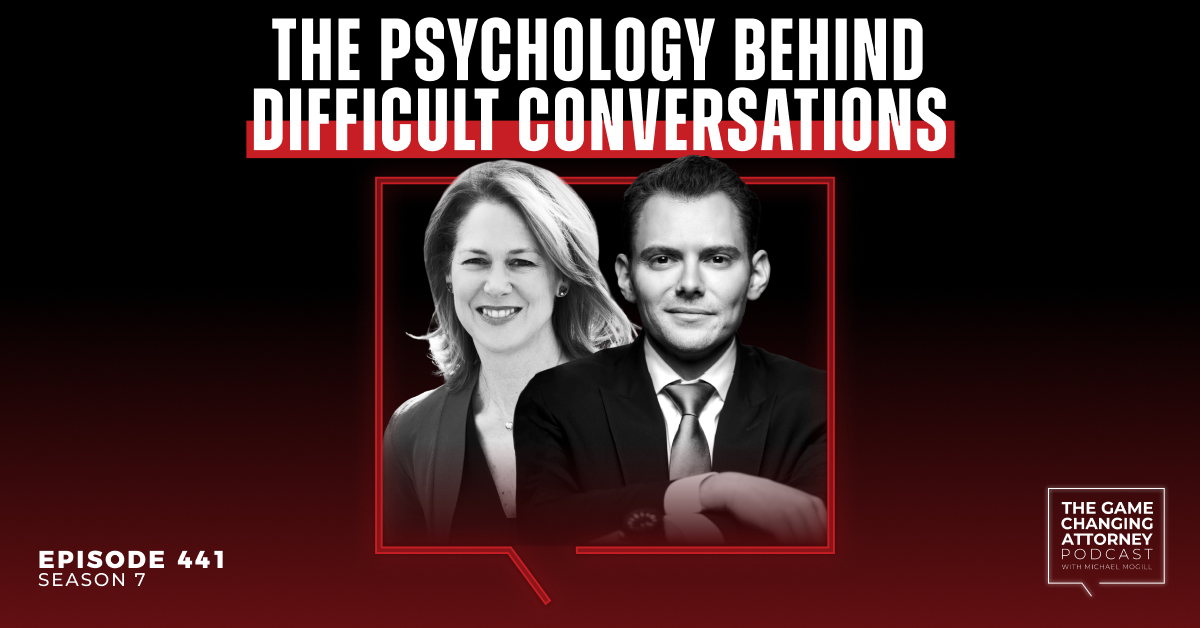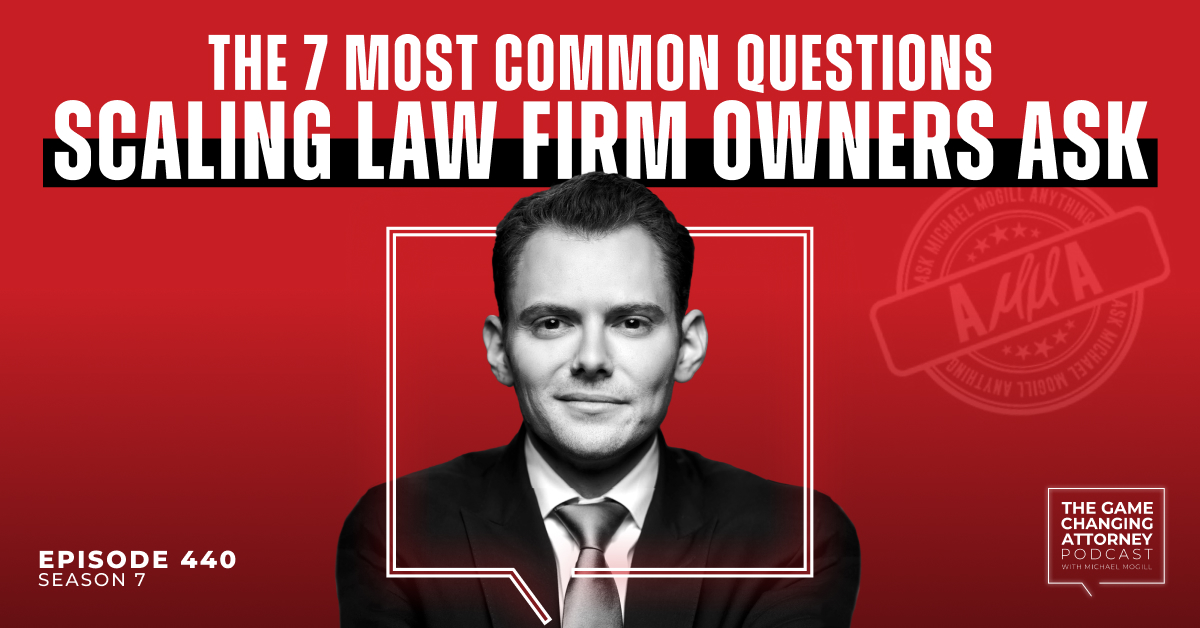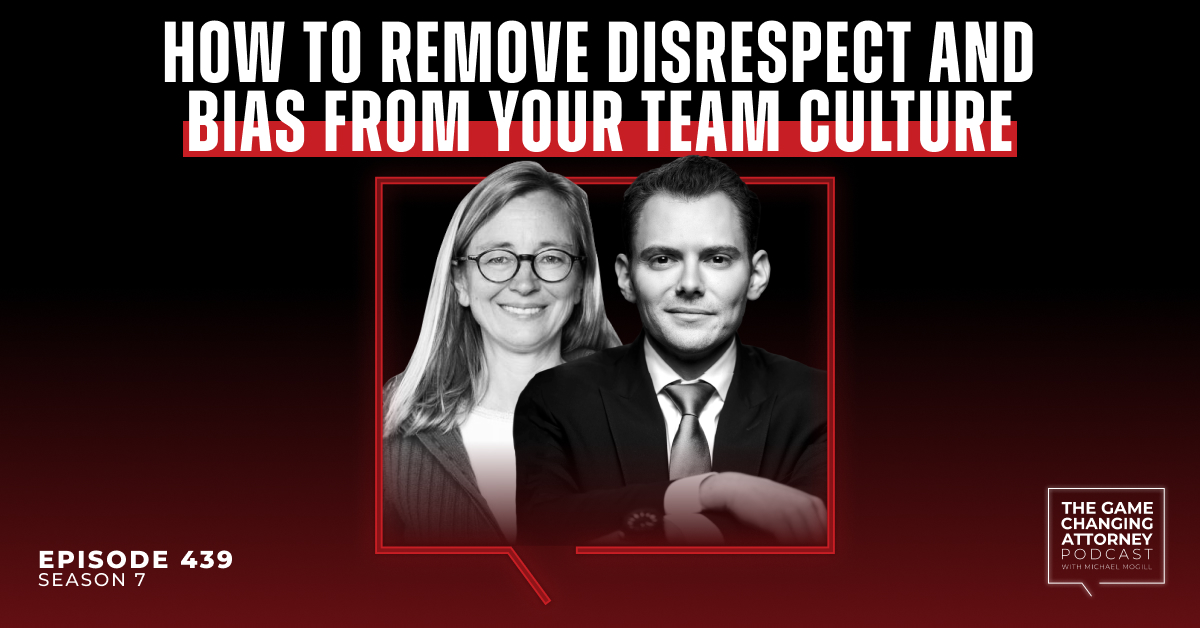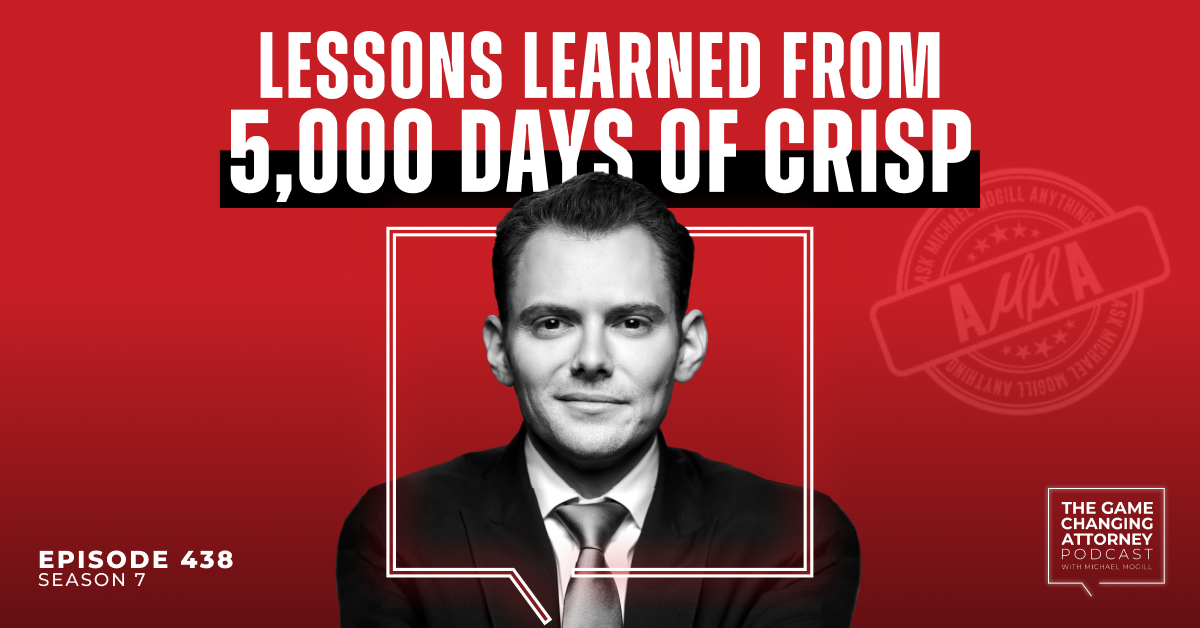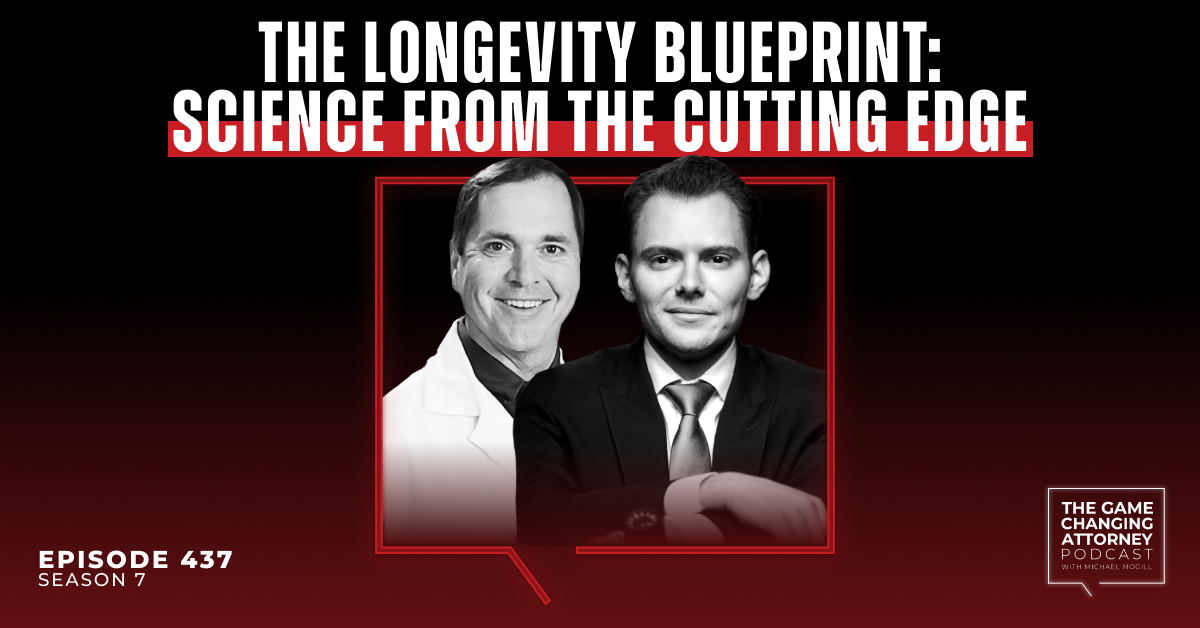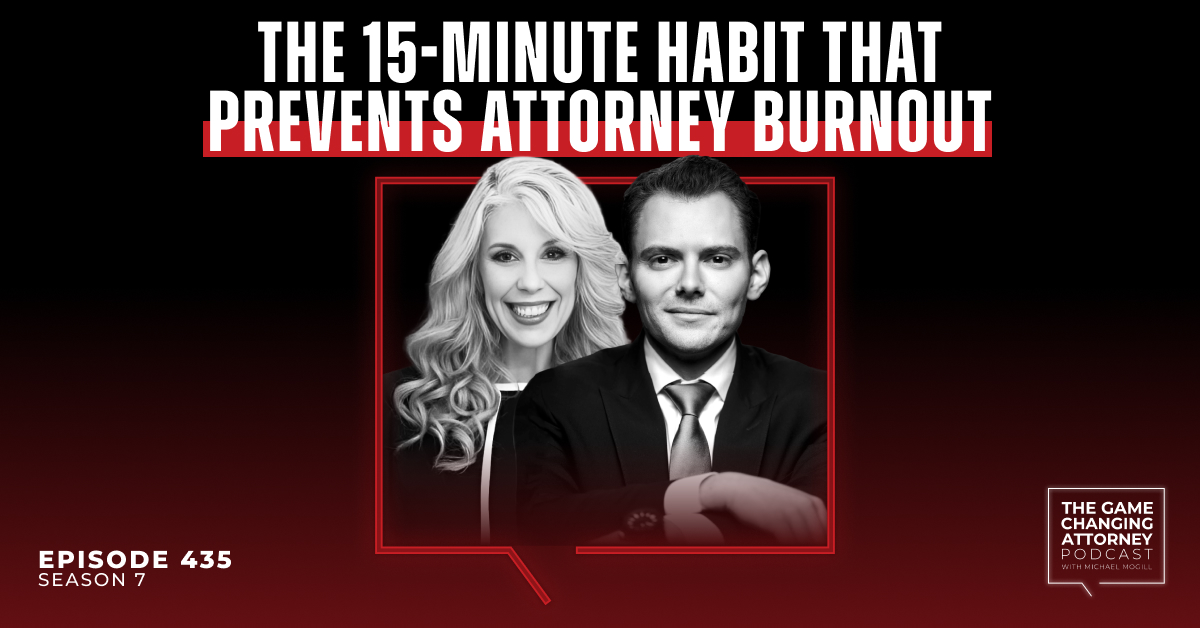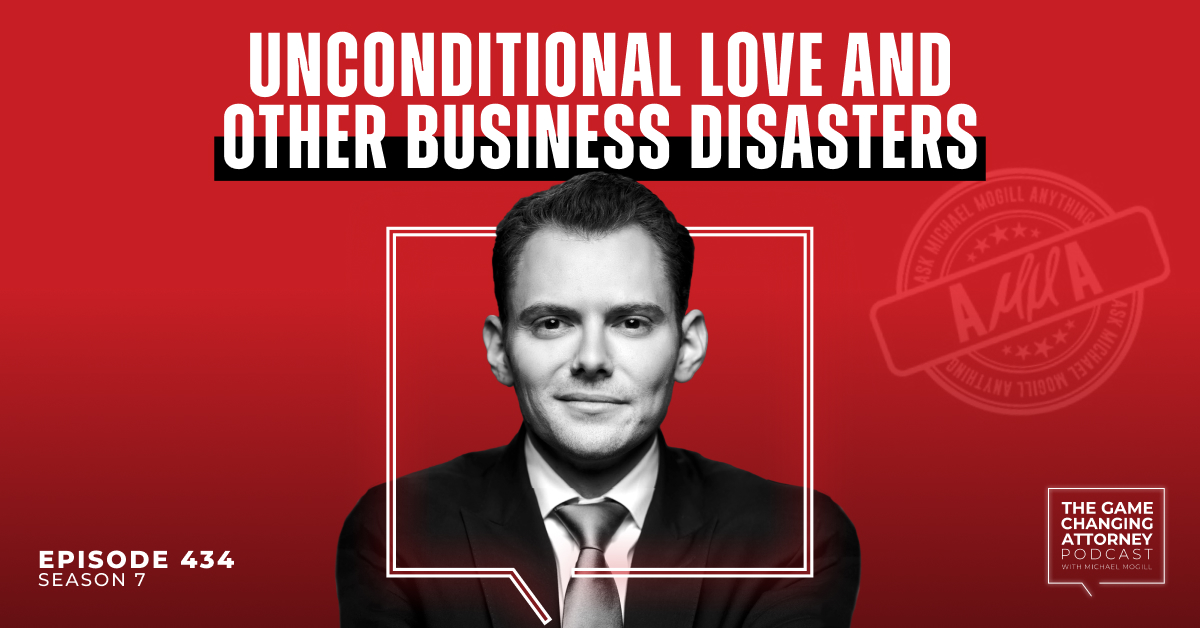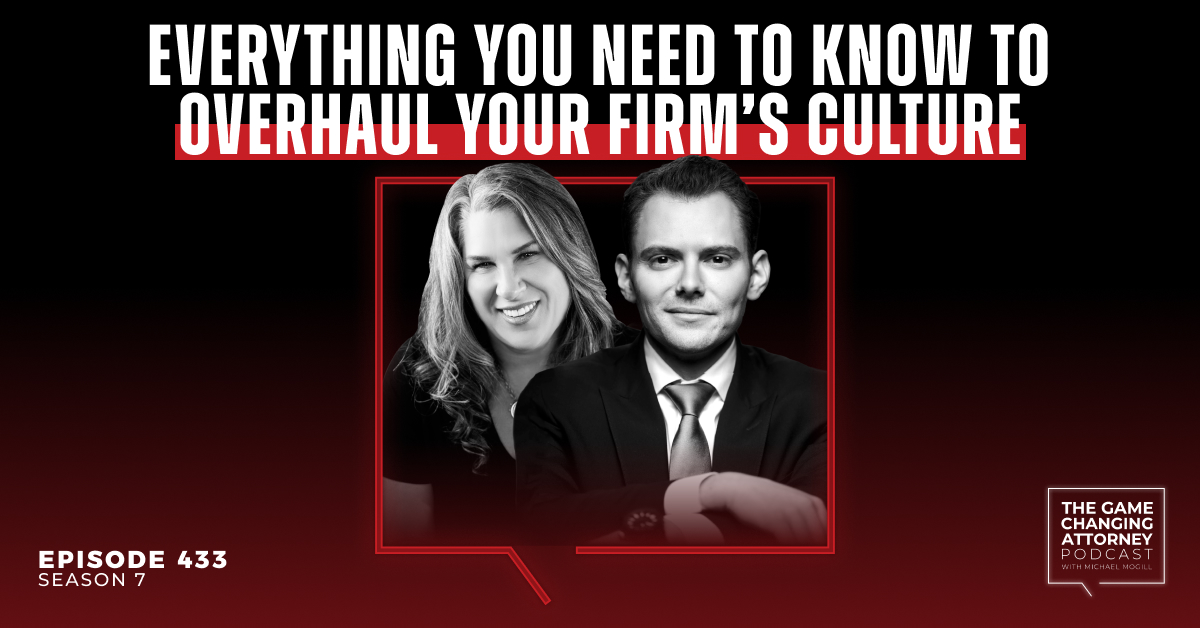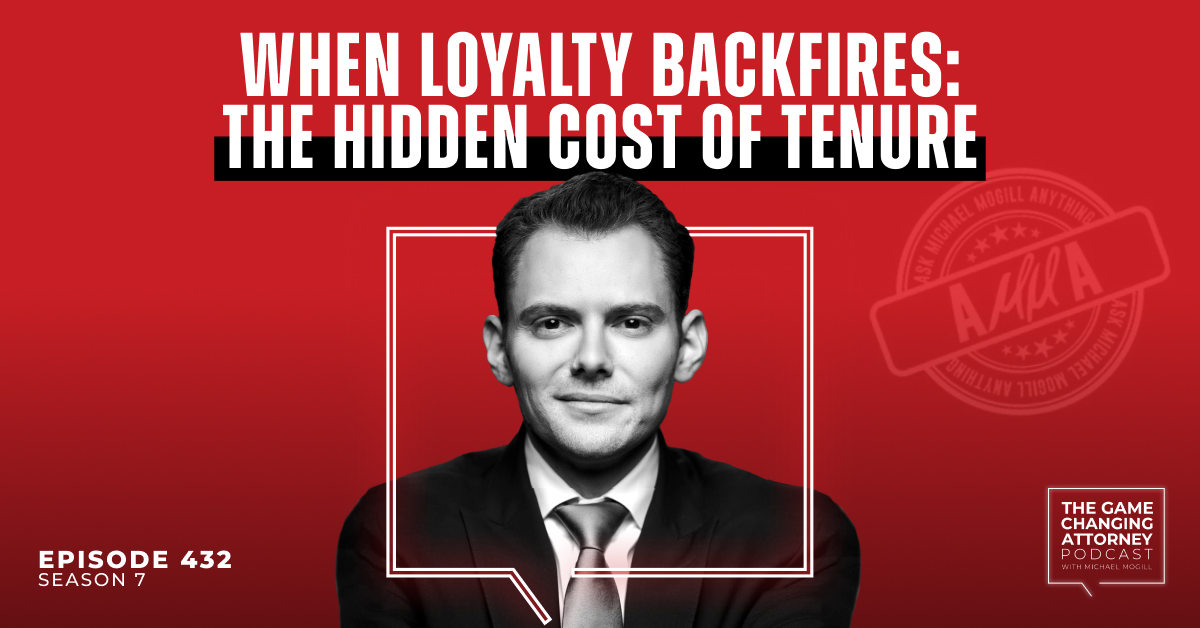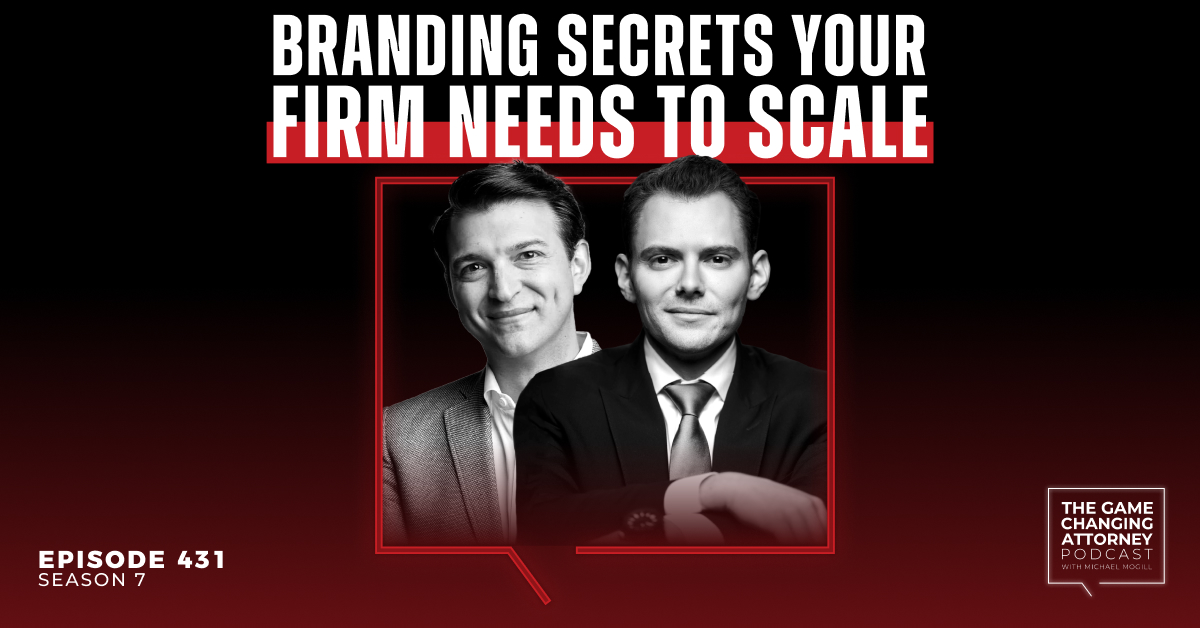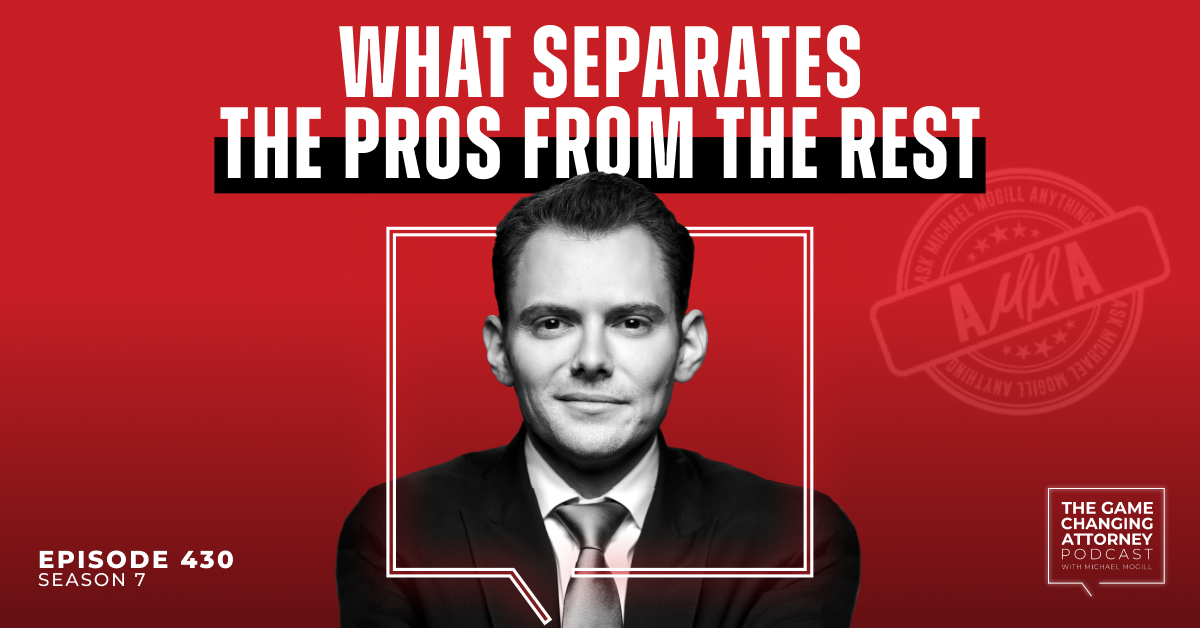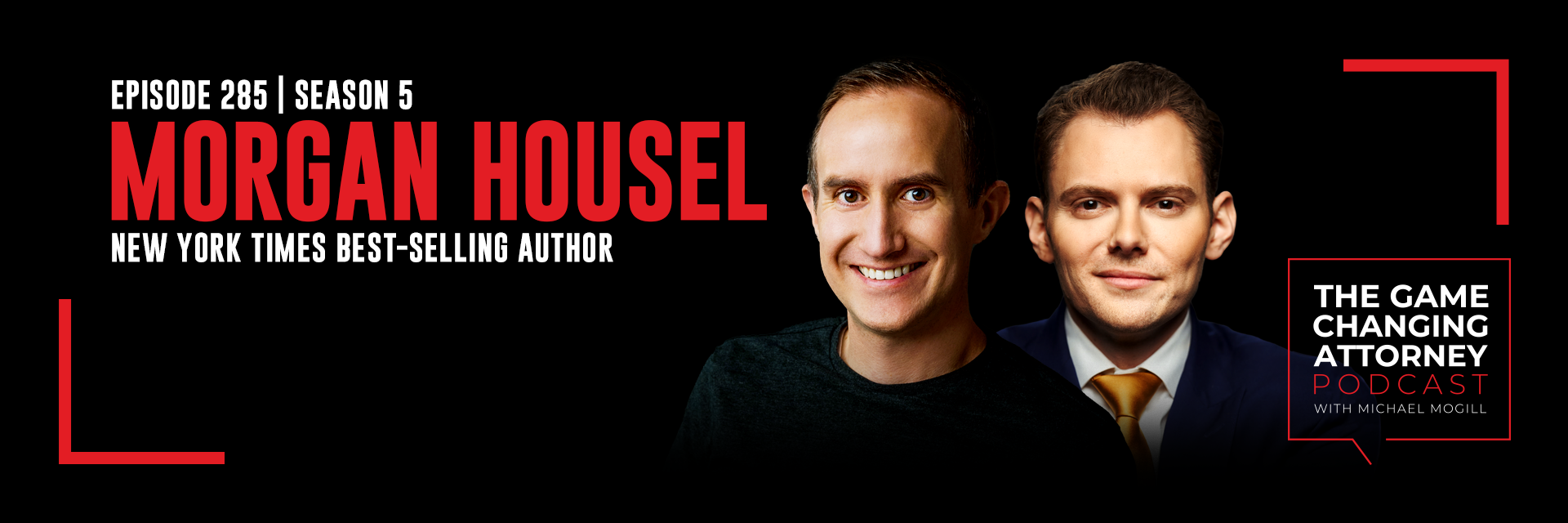
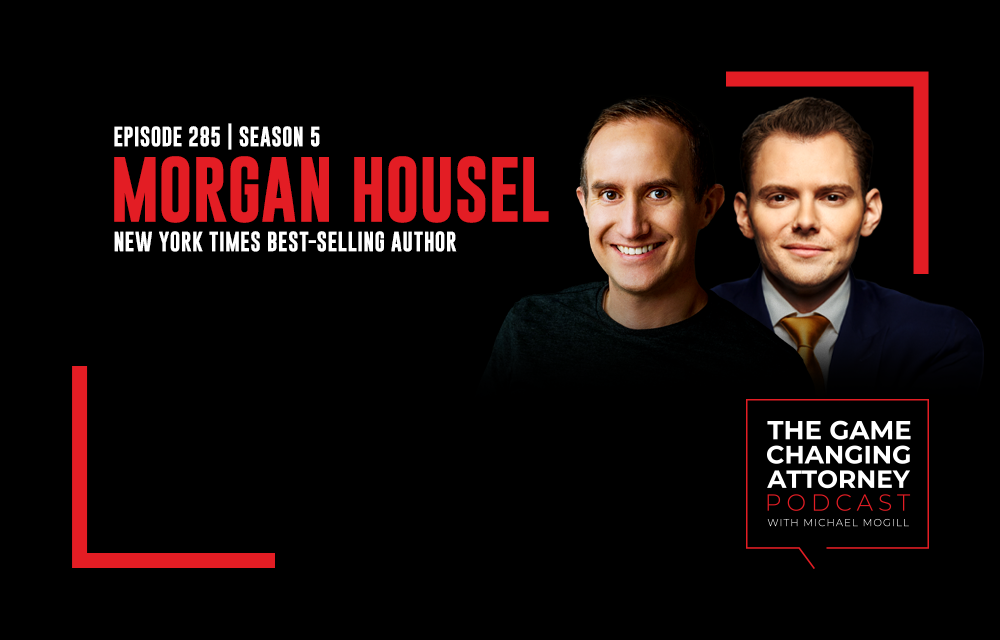
Episode 285 — Morgan Housel — Mastering the Psychology of Wealth: Beyond Money and Success
If you think that simply earning more money will solve your financial woes, think again.
Morgan Housel — partner at The Collaborative Fund and New York Times best-selling author of The Psychology of Money — has cracked the code on mastering the intricate dance between wealth and human behavior.
His research has proven that true financial success is not just about accumulating wealth but understanding the psychological forces that drive our financial decisions.
In this episode of The Game Changing Attorney Podcast, Morgan and Michael Mogill discuss:
- The critical difference between getting wealthy and staying wealthy
- Why your personal experiences with money shape your financial decisions more than you realize
- How to prepare for economic events that you can’t see coming
Listen & Subscribe
Show Notes:
Life is luck. “When you look at a successful person and acknowledge that luck played a role, it can make you seem bitter or jealous. Similarly, if I look in the mirror and admit that I got lucky, it can diminish my sense of hard work and effort. People tend to overlook or downplay the role of luck, but it undeniably plays a significant part. It’s common to hear sayings like, ‘The harder I work, the luckier I get,’ but this reflects a misunderstanding of luck. If actions can increase the chances of becoming ‘lucky,’ then it’s not truly luck. Luck, in my view, primarily involves factors beyond our control: where, when, and to whom we were born, the generation we’re part of, and the country and parents we have. No amount of hard work or intelligence can influence these aspects. If Bill Gates, Elon Musk, or Mark Zuckerberg had been born in Zimbabwe in 1750, they wouldn’t have achieved the same level of success they have today. When looking up to successful people as role models, it’s crucial to distinguish which traits are worth emulating. For instance, you can strive to adopt Warren Buffett’s longevity and long-term perspective or Bill Gates’s work ethic. However, you can’t replicate the luck they experienced in their lives.”
Stop shifting the goalpost. “There is no objective measure of wealth. There’s no definitive amount of money that makes someone wealthy. Wealth is always relative; it’s about what you have compared to someone else. It’s always, ‘What do I have compared to that guy?’ or ‘How does my house compare to her house?’ Wealth is a relative concept. We’re fortunate to live in a world that generally becomes wealthier, more productive, and technologically advanced, with better health outcomes. However, this progress creates shifting goalposts for wealth. Today, you might think, ‘Once I have $1 million or $10 million, I’ll be happy.’ But once you reach that level, you start comparing yourself to those with $2 million or $20 million, and the goalpost keeps moving.
More than meets the eye. “The view we get from social media — and even before its advent — makes it seem like others have amazing, happy, and wealthy lives. However, nine times out of 10, that’s a false view of what’s going on inside of that person’s head. People almost never show the downsides of their lives. They only promote the good parts and hide their skeletons. The person you admire and think has a perfect life is likely dealing with a lot of issues you wouldn’t want to face yourself. This is especially true for some of the most successful individuals in the world, like Musk, Zuckerberg, Buffett, and Gates. Their immense success and wealth often come from being mentally tortured. These individuals wake up every morning driven by an insatiable need to solve problems. Walter Isaacson, who wrote the biography of Elon Musk, said it best, describing them as ‘people who are driven by demons get shit done.’ This drive, fueled by anxiety and internal struggles, is a significant factor in their achievements.”
Be optimistic and pessimistic. “Becoming wealthy requires a lot of optimism. You need to believe in yourself, your abilities, the economy, and your industry. However, staying wealthy demands almost the exact opposite traits. You have to be somewhat paranoid, conservative, and pessimistic to make sure you have enough of a buffer to weather any financial storms. These skills are polar opposites. This is why you often see people who are great at getting rich but struggle to stay rich. On the flip side, some people are excellent at saving what little money they have, but they never amass significant wealth. These extreme personalities often outnumber those who are adept at both acquiring and maintaining wealth. People often view optimism and pessimism as black and white traits. However, those skilled at both getting and staying rich understand the need for balance. The best approach is to save like a pessimist and invest like an optimist. Save with the mindset that the world is fragile, you’re imperfect, industries are flawed, companies can fail, and disasters like wars, recessions, and pandemics will happen. But invest with the belief that enduring these challenges can yield incredible rewards. Said differently, be optimistic about the future but pessimistic about the challenges in getting there.”
More income, less ego. “Saving and building wealth is fundamentally about the gap between your income and your ego. When you meet someone earning half a million or even a million dollars a year but still living paycheck to paycheck, it’s because their ego drives them to maintain a grandiose lifestyle they can’t afford. They feel compelled to drive a certain car, live in a specific house, and flaunt a lifestyle that attracts attention. Even in expensive places like Manhattan, earning $500,000 a year can afford an amazing life. On the other hand, if you’re in the middle of Kentucky but feel the need to be the center of attention with your car, house, and jewelry, you can blow through that money quickly. The issue often isn’t the cost of living. It’s about ego and expectations. Wealth is the gap between your income and your expectations. If someone earns half a million dollars a year but expects to live a million-dollar lifestyle, it’s a straightforward equation: they’re headed for financial trouble.”
Expect the unexpected. “When you realize how fragile the world is and how much hangs by a thread, it tempers your willingness to predict what’s going to happen over the next five years. You have no idea. Financially, the best way to handle unforeseen events is to maintain a level of liquidity and conservatism that feels excessive. If you’re only saving for risks you can imagine or expenses you know are coming, you’re not prepared for the surprises you can’t see. Many people and businesses only save enough cash for foreseeable needs — like building a structure next month or buying a car in the next year. When an unexpected shock hits, they find themselves completely unprepared. Therefore, the amount of cash you should have on hand should feel like it’s too much. If it feels like it’s excessive, then you at least have a fighting chance to deal with the risks that you cannot even envision.”
- The Psychology of Money by Morgan Housel
- Bill Gates
- Elon Musk
- Mark Zuckerberg
- Warren Buffett
- Walter Isaacson
- Jeff Bezos
- Donald Trump
- Bernie Madoff
- Paul Getty
- Lamborghini
- Bentley
- Ferrari
- Rolls-Royce
- Audi R8
- Robert Downey Jr.
- The Terminator (film)
- Mike Tyson
- The Great Depression
- World War II
- Nvidia
- Jensen Huang
- Naval Ravikant
- Steve Jobs
- Scott Galloway
- Chris Rock
- The 2024 Game Changers Summit
Connect with Michael
- Text directly at 404-531-7691
